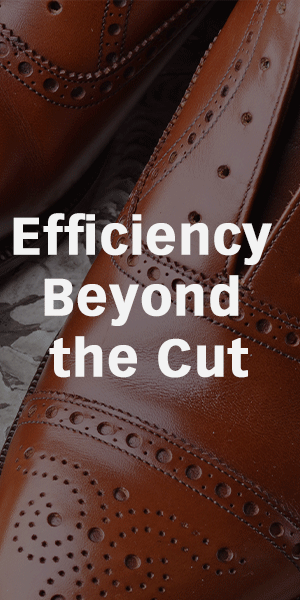Circularity on track

Two rival safety footwear suppliers in the Netherlands have teamed up to establish the Circular Footwear Alliance. They continue to compete in the marketplace, but are helping each other collect used safety shoes when workers have finished with them so that the components and materials can go into new products.
Dutch companies EMMA and Allshoes have combined to create a circular system for safety shoes, collecting used footwear from a range of work environments and using the materials and components to develop new products.
They have joined forces with FBBasic, a specialist waste recovery company also based in the Netherlands, to form the Circular Footwear Alliance. They draw their inspiration from the European Green Deal, the wide-ranging set of policies that the European Commission published at the end of 2019, with the aim of resetting its commitment to tackling climate and environment-related challenges. The document describes this undertaking as “this generation’s defining task”.
Industry response
In a joint statement, the two footwear producers said: “Together, we can provide enough scale to really make a circular system work in practice.” The combined volume of shoes they bring to market has allowed the idea of circular safety shoes to reach a tipping point, with enough used materials becoming available now to make their reuse viable. “The ambition is clear,” they state. “To preserve raw materials and to make sure there is no more waste."
Collection points in place
The Circular Footwear Alliance partners confirmed that the first 100 collection points for used shoes have already been set up. They provided dedicated drop-off points for workers to deposit safety shoes, which the companies involved in the project will use as raw materials for new footwear. The collection points have gone up at the facilities of customers of Allshoes and EMMA. These include wholesalers, large and small employers, start-ups and multinationals, public- and private-sector organisations. The partners aim to collect two million pairs per year within the next few years. This puts into practice the promise of making sure raw materials are no longer lost. But, working backwards from there, the partners have also said that they want to design shoes in such a way as to make sure the components and raw materials can be reused in new products in the future, prolonging their useful life and preserving value.
Together, Allshoes and EMMA command a large share of the Dutch market for safety shoes. The Circular Footwear Alliance concept arose because this large combined market share makes the reverse logistics, the dismantling and recycling of shoes and the recovery of the raw materials worthwhile. Both footwear producers have committed to making this circular way of working an integrated part of their strategies. Allshoes chief executive, Michiel van Kempen, says: “We are just as fierce competitors as before, but at the Circular Footwear Alliance table we both feel that we are here together to make a difference for the future."
Endless loop
They had each tried tackling the problem unilaterally. EMMA introduced a range of circular safety shoes in 2018, outlining its vision of “an endless loop” and stating an ambition to make all of its shoes and boots in keeping with circular principles by the end of 2019. It wanted to track and trace all of its shoes from start to finish in the value chain, with the aim of incorporating the materials into a materials bank for reuse and recycling. It identified Sittard-based technology provider Cirmar as the partner it would work with to develop the track and trace system, under which all of EMMA’s products were to be given a material passport. This was a positive start and, in spite of delays brought on by EMMA’s acquisition in January 2020 by Swedish group Hultafors and, subsequently, by covid restrictions, it has now resulted in the Circular Footwear Alliance, with Allshoes lending its weight to the idea and FBBasic, the company behind Cirmar, joining in too.
FBBasic describes itself as a specialist in “urban mining”, the practice of uncovering metals and other valuable materials from the waste our towns and cities produce rather than digging them out of the ground. It says this is “a smart contribution to reducing raw material scarcity”. Its chief executive, Frans Beckers, says the Circular Footwear Alliance is “the beginning of something really big”.
On launching its first circular shoes and boots in 2018, EMMA decided that it would no longer use PVC, owing to “its impact on people and the environment”. It began to make even its logos out of reusable textiles and rubber instead. It replaced lacing hooks with eyelets to make damage that could prevent the shoe’s longevity less likely. Seams are constructed in a groove so that they do not wear out. In the insoles, 85% of the material is foam recycled from mattresses, car seats and other sources. Bryce, Amazone, Andes, Himalaya, Zion and Alaska were the first models to be made with circular principles in mind. Now, the company says, thanks to the Circular Footwear Alliance, its entire collection is fully sustainable.
The Andes is one of EMMA’s first circular safety shoes. It has a steel toe-cap, an integrated stainless-steel plate and a double-layer, anti-slip PU sole. The manufacturer says they are particularly well suited to workers in the metal and construction industries.
All Credits: Emma












